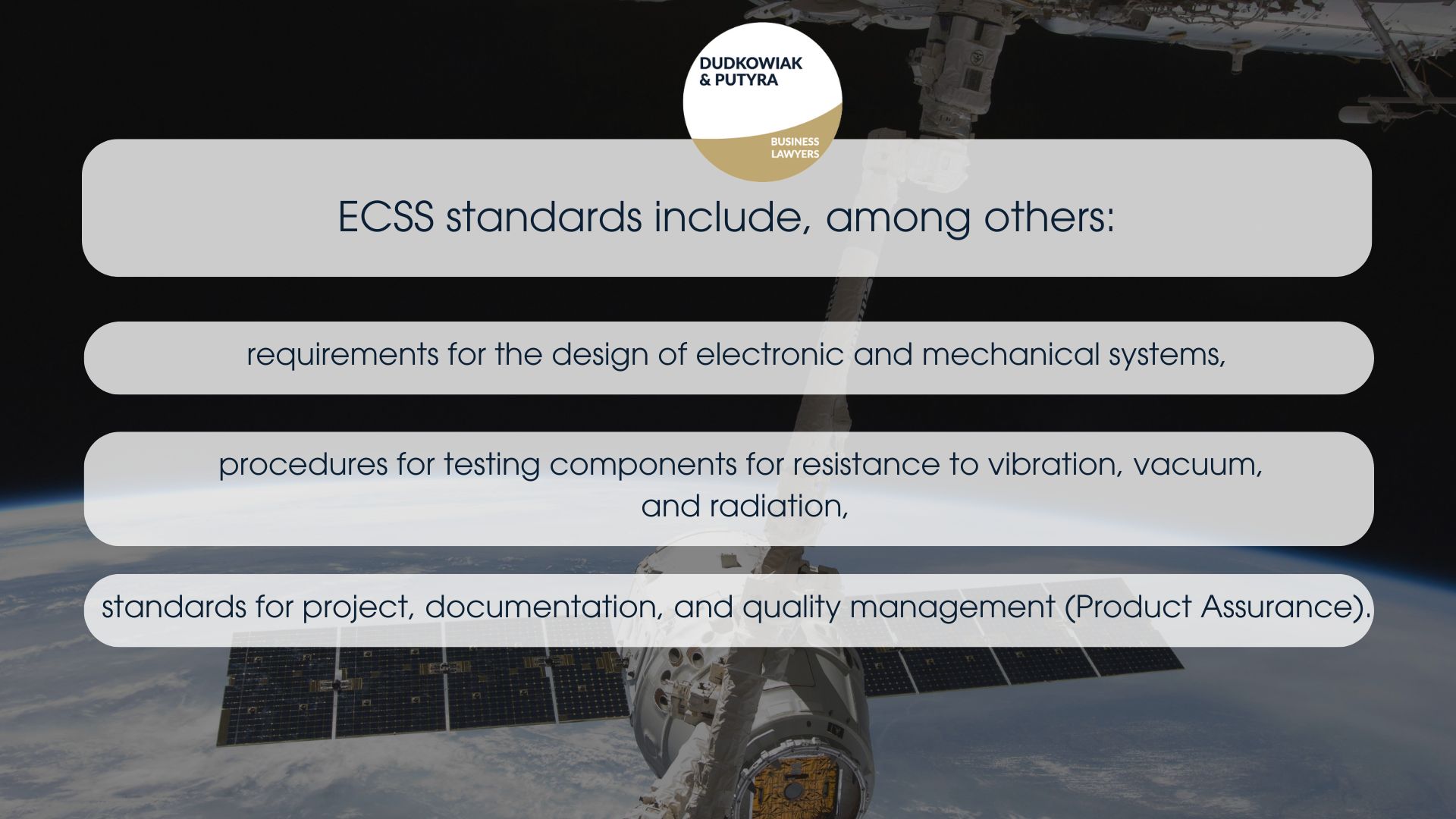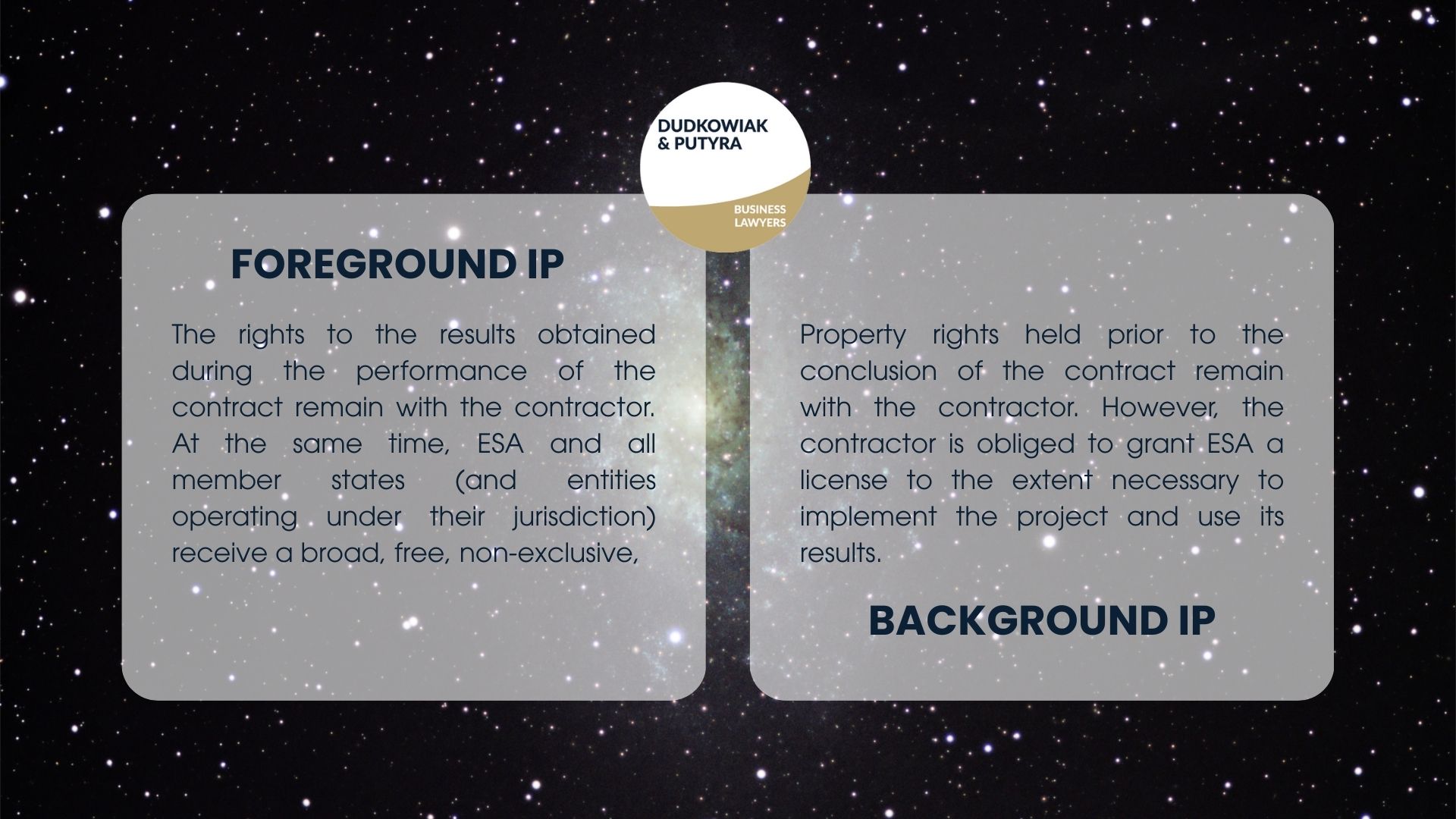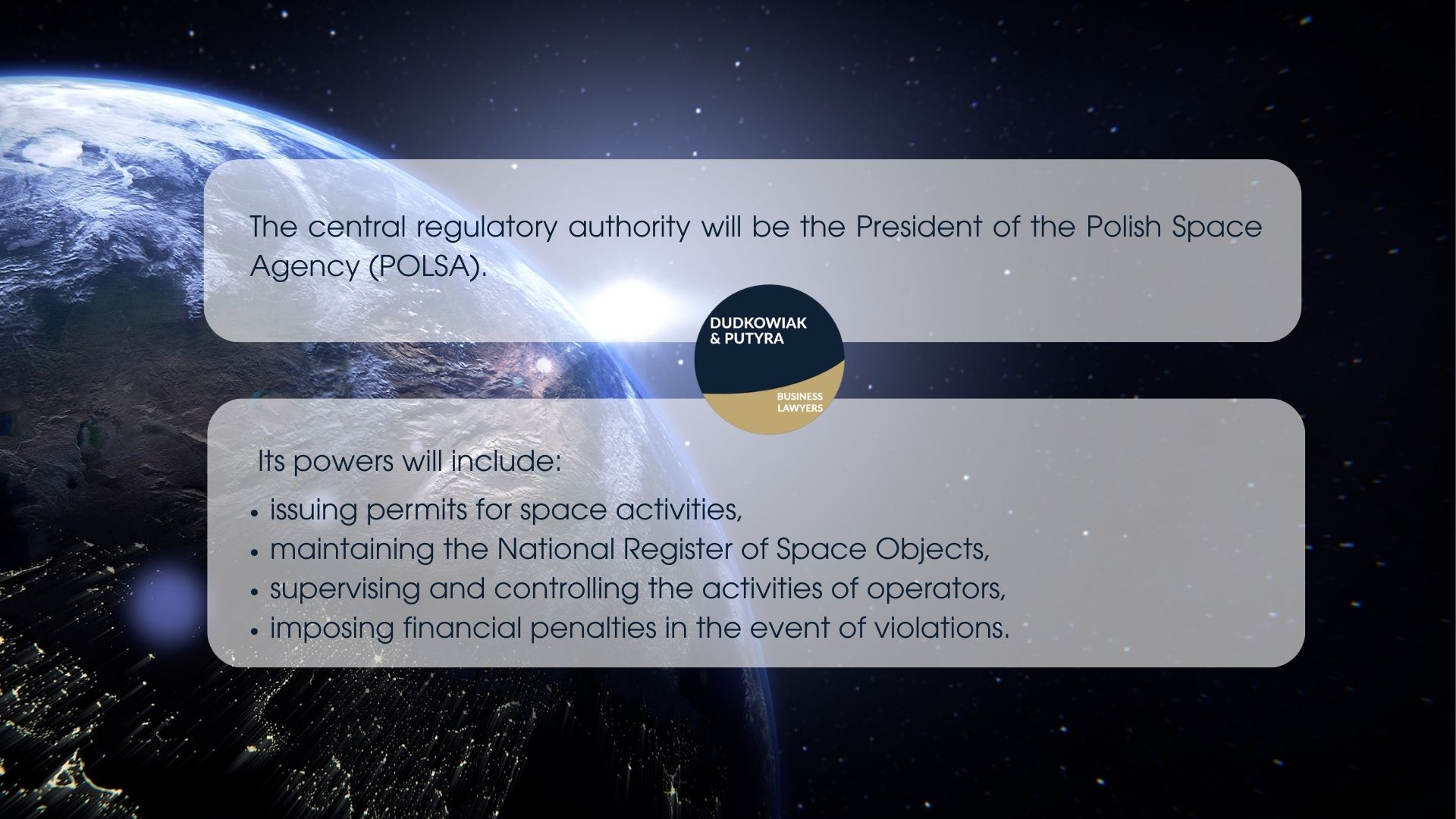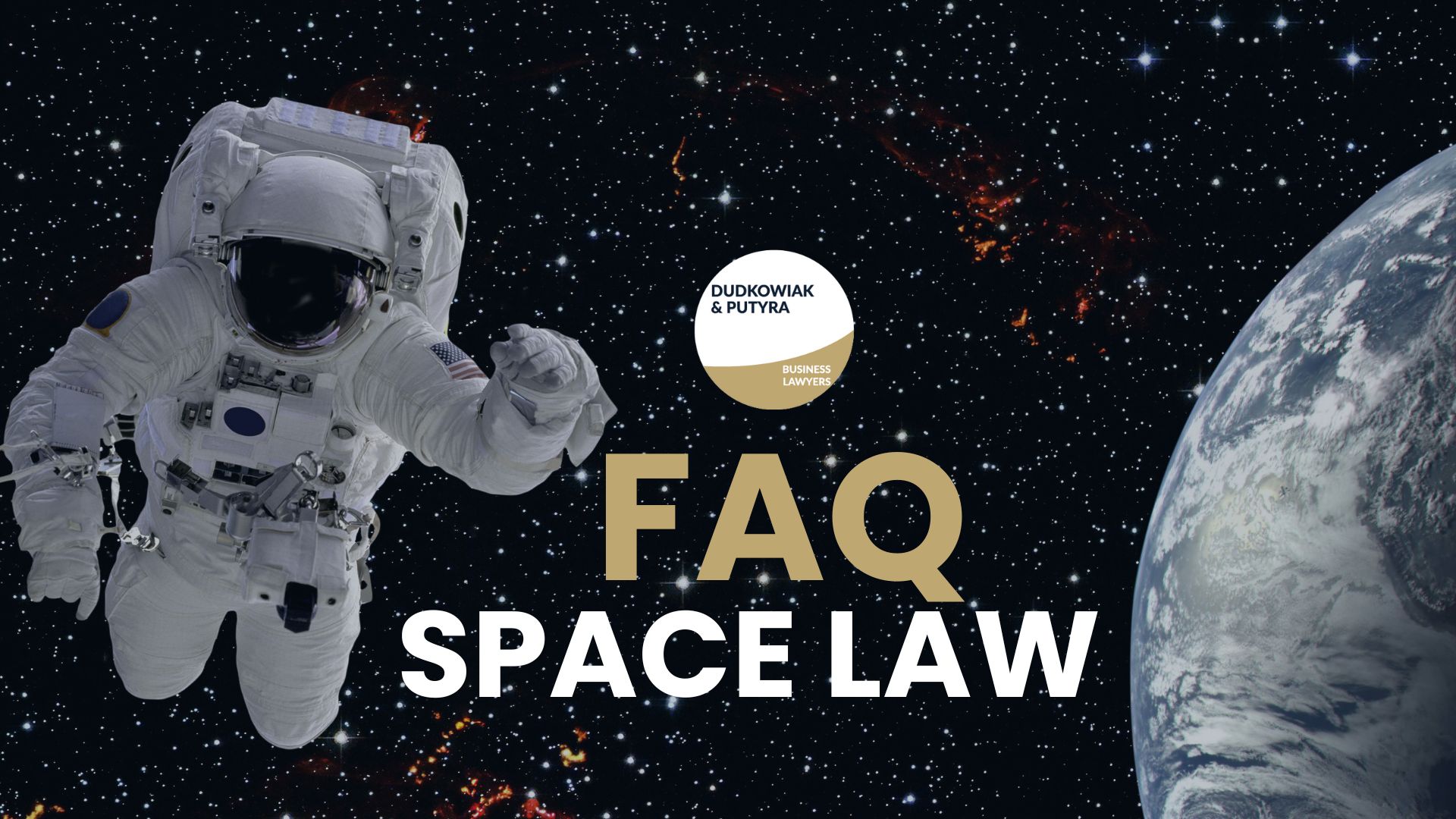Last updated: 30.09.2025

International space law is gaining importance as more member states, private companies, and international organizations expand their activities in outer space. The legal framework sets out legal principles, rights, and obligations concerning outer space affairs, from the launch of satellites to environmental protection and dispute resolution. at the
The governance of outer space is shaped by international agreements and United Nations frameworks – most notably the Outer Space Treaty – that guide the use of outer space for peaceful purposes.
Poland and the European Union are actively shaping their approach to outer space affairs by combining international treaties with national space legislation and regional policies. Upcoming domestic agreements aim to regulate the fast-growing space sector while supporting space exploration, space missions, and the space industry through international cooperation.
Key Facts on Space Law in Poland and the EU
| Area | Key information |
| Space law in Poland – current situation | No comprehensive law; UD20 draft in progress. International obligations, the POLSA Act, and general legal provisions apply. |
| State Responsibility in Space Activities | Poland is internationally responsible for space activities carried out by national entities (public and private). The state must grant “authorization” and exercise constant supervision. |
| Licensing and Registration Procedures | No formal permits; companies conduct informal consultations with the Ministry of Infrastructure and Development and POLSA. Satellite registration in Poland – informal procedure. Alternative: registration in another country. |
| Space law in European Union – current status | No uniform space law (EU Space Law in preparation). Among others, Regulation 2021/696, ECSS standards, horizontal regulations (GDPR, REACH, dual-use) apply. |
| Key EU Institutions in Space Law | DG DEFIS – policy and regulations; EUSPA – program management (Galileo, Copernicus); ESA – technical standards, intergovernmental cooperation with national space agencies across other countries. |
| Market Access in the Space Sector | Condition: compliance with ECSS. Participation in ESA requires registration with ESA-STAR. Optional programs – a Letter of Support from the national delegation is required (coordination: MRiT). |
| Intellectual Property Rights in ESA Projects | Foreground IP – remains with the contractor, ESA and member states obtain a broad license. Background IP – property of the contractor, obligation to grant the necessary licenses. |
| Export and dual-use | Space technologies are often dual-use. Exports outside the EU require individual permits. |
| Planned changes to space law in Poland | UD20 Act: mandatory permits, National Register of Space Objects, supervision and penalties by the President of POLSA, recourse mechanism against the operator. |
| Planned changes to space law in EU | Proposed EU Space Law: harmonization of regulations, regulations on STM, satellite safety, and space debris mitigation. Planned entry into force around 2030. |
Space law in Poland
Current legal principles
Poland is in the process of creating modern regulations for the space sector. The basic document is to be the draft Act on Space Activities (UD20), which is currently undergoing legislative work. Until its adoption, space activities are based on:
- international law obligations,
- the Act on the Polish Space Agency (POLSA)
- general provisions of commercial law.
The current model is not yet comprehensive, but it gives entrepreneurs the opportunity to conduct business based on existing regulations and, at the same time, allows them to prepare for new national space laws.
Market practice
Poland does not yet have a system of formal permits for space activities. In practice, entrepreneurs consult with the Ministry of Development and Technology and POLSA, which act as institutions supporting and reviewing projects.
The registration of space objects launched into outer space is currently carried out on an individual basis.
Although the procedure is not standardized, it allows for projects to be carried out with the participation of the state administration and for activities to be tailored to the specific nature of a given undertaking.
Space Law in European Union (EU Space Act)
At the European Union level, there is also no single, comprehensive EU space law (EU Space Law / Space Act) yet. An initiative in this area has been proposed and work on it is ongoing. The current legal framework consists of several elements:
- Regulation (EU) 2021/696, which establishes the EU Space Program and the EU Space Program Agency (EUSPA), specifying their budget and operating rule
- Technical Standards (ECSS), which are not formally EU law but are mandatory standards in contracts for the European Space Agency (ESA) and in many EU projects.
- Horizontal EU regulations, i.e., general regulations that also apply to the space sector, such as GDPR, REACH, or regulations on the export of dual-use technologies.
Key institutions include:
- Directorate-General for Defense Industry and Space (DG DEFIS), which manages the EU Space Program and proposes new regulations in coordination with the European Commission at the international level.
- EU Space Program Agency (EUSPA), responsible for the operational management of programs such as Galileo and Copernicus.
- The European Space Agency (ESA), an independent international organization that works closely with the EU and is the main source of technical standards for the European space sector.
Market access and requirements for goods and services
ECSS standards
Access to the European space market, including participation in the EU Space Program, is subject to compliance with specific technical and organizational standards. The ECSS (European Cooperation for Space Standardization) standards are of key importance to international cooperation among member states.
Compliance with ECSS is a prerequisite for any entity wishing to supply:
- components,
- software,
- services within the European supply chain.
ECSS standards include, among others:
- requirements for the design of electronic and mechanical systems,
- procedures for testing components for resistance to vibration, vacuum, and radiation,
- standards for project, documentation, and quality management (Product Assurance).

ESA and EUSPA contract procedures
- registration in the ESA-STAR (System for Tendering And Registration) system – a basic requirement when applying for contracts,
- in the case of ESA optional programs – obtaining a Letter of Support from the national delegation, which in Poland is coordinated by the Ministry of Development and Technology.
The Letter of Support confirms that the project is in line with the priorities of the Polish Space Strategy and contributes to the development of the national sector.
Intellectual property in ESA projects
Intellectual property rights issues in cooperation with ESA are precisely regulated. These rules are derived from, among others, the following documents:
- “General Clauses and Conditions for ESA Contracts,”
- “Rules on Information, Data and Intellectual Property.”
The adopted model provides for:
- Foreground IP – the rights to the results obtained during the performance of the contract remain with the contractor. At the same time, ESA and all member states (and entities operating under their jurisdiction) receive a broad, free, non-exclusive, and irrevocable license to use these results for research and technological purposes.
- Background IP – property rights held prior to the conclusion of the contract remain with the contractor. However, the contractor is obliged to grant ESA a license to the extent necessary to implement the project and use its results.

Export Control and Dual-Use Goods
Space technologies are often dual-use, meaning that they can be used for both civilian and military purposes. The sale of such technologies outside the European Union is subject to strict controls and requires individual export licenses. (more on this here:
Changes in regulations
Poland – Space Activity Act (UD20)
The basis for the future legal framework in Poland will be the Space Activity Act (UD20). Its purpose is to create a coherent regulatory system that will:
- define space activity,
- centralize oversight of the sector,
- introduce uniform procedures for entities conducting space activity from Polish territory or subject to Polish jurisdiction.
Permit to conduct activities
The new act provides for the introduction of a requirement to obtain a permit to conduct space activities. This means that any satellite launch or operation will require prior approval.
Each space object for which a permit is issued will have to be entered in the National Register of Space Objects.
The role of POLSA
The central regulatory authority will be the President of the Polish Space Agency (POLSA). Its powers will include:
- issuing permits for space activities,
- maintaining the National Register of Space Objects,
- supervising and controlling the activities of operators,
- imposing financial penalties in the event of violations.

Operator Responsibility and the National Register of Space Objects
Under international space law, the state bears absolute responsibility for objects launched into space. The proposed law introduces a recourse mechanism that shifts the burden of this responsibility to the operator conducting the activity.
In practice, this means that entrepreneurs will have to include appropriate risk management and insurance mechanisms in their business models.
EU – EU Space Law
At the same time, work is underway to create a uniform space law at the European Union level. The proposed EU Space Law aims to harmonize national regulations and standardize operating rules across the community.
The new regulations are to cover in particular:
- space traffic management (STM),
- security and resilience of satellite systems,
- sustainable use of outer space, including regulations on so-called “space debris.”
This act is planned to enter into force around 2030.
Law in Space – conclusion
The legal framework for space activities in Poland and the EU is still in transition, but its foundations are already well established.
By combining international obligations with new legislative initiatives, policymakers aim to create rules that will foster growth while addressing risks such as liability, safety, and sustainability.
In the coming years, the success of these efforts will largely depend on the ability of states, institutions, and private actors to cooperate effectively and to adapt regulations to the challenges of an increasingly complex space environment.

FAQ: Space law
What are space resources and who controls them?
Space resources such as minerals from the Moon or other celestial bodies are treated under general international law and United Nations treaties, which emphasize their status as the common heritage of humankind.
Is space tourism legally regulated?
Yes, space tourism is subject to safety standards, liability rules, and cooperation between national space agencies and the international community.
What role does the International Telecommunication Union play in space law?
The International Telecommunication Union coordinates satellite communications and manages the use of electromagnetic waves in space related activities.
Are nuclear power sources allowed in outer space?
Yes, but the use of nuclear power sources is strictly regulated due to risks such as radiological hazards and potential threats of mass destruction.
What is remote sensing and why is it regulated?
Remote sensing uses satellites and electromagnetic waves to gather data about the Earth’s surface. Its regulation ensures that data is used fairly, helping to protect individuals and maintain trust between other countries.
How did the Cold War shape international space law?
The space race between the United States and the Soviet Union shaped the early framework of space law. Its roots lay in rocket technologies developed during the Second World War, later adapted for exploration and defense.
Starting with the launch of Sputnik 1 in 1957, the rivalry drove rapid progress in satellites, human spaceflight, and the first landing on the Moon. These milestones highlighted both the potential and risks of space activities, leading the international community to create agreements such as the Outer Space Treaty, ensuring that space would be used for peaceful purposes and benefit all nations.
What are rescue efforts in space law and how do states assist astronauts in distress?
Rescue efforts under international space law are defined in the Rescue Agreement and related United Nations treaties. States are required to provide all possible assistance to astronauts in distress, regardless of the launching country. This obligation ensures that nations cooperate to assist astronauts during emergency landings, accidents, or returns from outer space.
